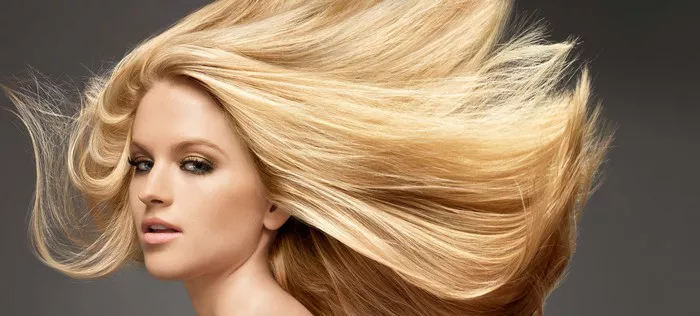Hair is a fascinating part of our identity, and its growth and appearance can significantly impact our overall look and confidence. However, a common question often arises: “At what age does hair stop growing?” In this article, we will delve into the intricacies of hair growth, the different stages of the hair growth cycle, and the factors that can influence the rate and duration of hair growth. Join us as we unravel the mysteries of hair growth and gain insight into the factors that contribute to a healthy and vibrant mane throughout our lives.
The Hair Growth Cycle: An Overview
Anagen Phase:
The anagen phase, also known as the growth phase, is the active period of hair growth. During this phase, cells in the hair follicles divide rapidly, pushing the hair shaft up and out of the scalp. The length of the anagen phase determines how long hair can grow.
Catagen Phase:
The catagen phase is a transitional phase that follows the anagen phase. It is a short period when hair growth slows down, and the hair follicle shrinks. This phase marks the end of active hair growth.
Telogen Phase:
The telogen phase is a resting phase during which the hair follicle remains dormant. The old hair is held in place while a new hair begins to form underneath it.
Exogen Phase:
The exogen phase is the shedding phase, where the old hair is released and falls out naturally. This phase prepares the follicle to enter the next anagen phase and restart the growth cycle.
Understanding Hair Growth Factors
Genetic Factors:
Genetics play a significant role in determining the rate of hair growth and the overall lifespan of each hair follicle. Some individuals may have a genetically predetermined longer anagen phase, allowing their hair to grow longer before entering the resting phase.
Hormonal Influences:
Hormonal changes can affect hair growth patterns throughout a person’s lifetime. For example, during puberty, an increase in hormone levels can lead to accelerated hair growth. Hormonal changes during pregnancy and menopause can also impact hair growth and quality.
Aging and Hair Growth:
As we age, the hair growth cycle can gradually slow down. Hair follicles may spend more time in the resting phase, resulting in thinner, slower-growing hair. While hair growth can continue throughout life, individual hair strands may become finer and more prone to breakage.
External Factors:
External factors such as nutrition, stress levels, scalp health, and hair care practices can influence hair growth. A balanced diet rich in vitamins, minerals, and proteins supports healthy hair growth. Proper scalp care, reduced stress levels, and gentle hair care routines can also contribute to optimal hair growth.
Promoting Healthy Hair Growth at Any Age
Nourishing Diet:
Ensure you consume a balanced diet that includes nutrients essential for hair growth, such as vitamins A, C, E, biotin, and iron. A diet rich in lean proteins, fruits, vegetables, and whole grains supports overall hair health.
Scalp Care:
Maintain a clean and healthy scalp by regularly washing with a gentle shampoo. Avoid excessive use of harsh chemicals and heat styling tools that can damage the hair and scalp.
Gentle Hair Care Practices:
Handle your hair gently to minimize breakage. Use a wide-toothed comb or a brush with soft bristles to avoid pulling and damaging the hair shaft. Limit the use of heat styling tools and protect your hair with heat protectants when necessary.
Stress Management:
Reduce stress levels through relaxation techniques, exercise, and self-care practices. Chronic stress can impact hormonal balance, which, in turn, can affect hair growth.
Conclusion:
As we conclude our exploration of the question, “At what age does hair stop growing?” it becomes clear that hair growth is a complex process influenced by various factors. While there is no fixed age at which hair stops growing, individual hair strands may become finer and slower-growing as we age. Understanding the hair growth cycle, genetic factors, hormonal influences, and the importance of external care can help promote healthy hair growth throughout our lives. Embrace a nourishing diet, scalp care, gentle hair care practices, and stress management techniques to support optimal hair health. Remember, each strand of hair is unique, and by nurturing and caring for your hair, you can enjoy a vibrant, healthy mane at any age.
Related topics:
- How to stop my hair from falling out
- How to thicken hair naturally
- How to thicken your hair: A Comprehensive Guide


